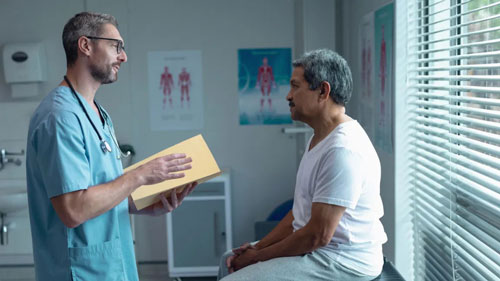Colon cancer rates for people under age 50 have increased significantly over the past 10 years.
In response, the U.S. Preventive Services Task Force has issued revised guidelines that change the recommended starting age for colon cancer screening from age 50 to 45.
Screening can include stool tests, endoscopic tests, or computed tomography colonographies and colonoscopies.
Colorectal cancer rates have been rising in seemingly healthy people under age 50 according to recent research, and health officials are taking action.
The U.S. Preventive Services Task Force (USPSTF) has issued new guidelines today that recommended colon cancer screening start at age 45 instead of age 50.
Although roughly 90 percent of colorectal cancerTrusted Source cases happen in people over age 50, cases of colorectal cancer have been rising in adults younger than 50, according to the National Institutes of Health (NIH).
A study publishedTrusted Source in April 2021 in the Journal of the American Medical Association (JAMA) found that for the age group 20 to 49, colorectal cancer is estimated to become the leading cause of cancer-related deaths by 2030.
“We are seeing a clear uptick in colorectal cancer in younger generations,” Haddon Pantel, MD, a Yale Medicine colorectal surgeon, said in a statement.
The new guidelines come after the USPSTF issued an initial draft recommendation to lower the recommended age to begin colorectal cancer screening from 50 to 45 years old last October.
Now, a new comparative modeling study publishedTrusted Source in JAMA confirms not only that routine screening for colorectal cancer reduces lifetime risk of being diagnosed with and dying of the disease, but that the greatest benefit was for those who began screening at age 45.
“Far too many people in the U.S. are not receiving this lifesaving preventive service,” says Task Force vice chair Dr. Michael Barry, in a statement released today.
“We hope that this new recommendation to screen people ages 45 to 49, coupled with our long-standing recommendation to screen people 50 to 75, will prevent more people from dying from colorectal cancer.”
Screening can include stool tests, endoscopic tests, or computed tomography colonography and colonoscopies.










